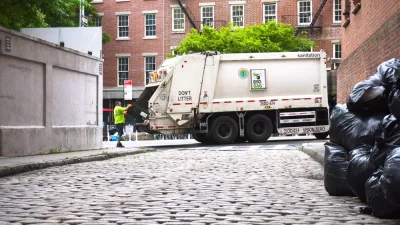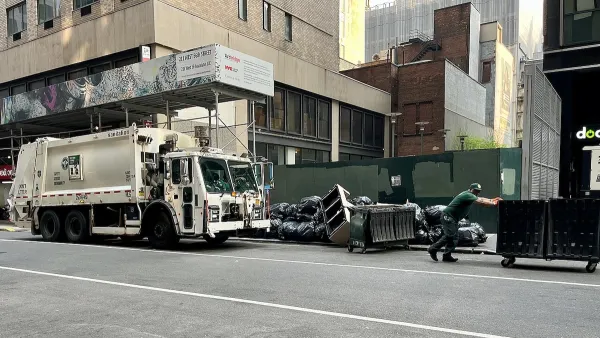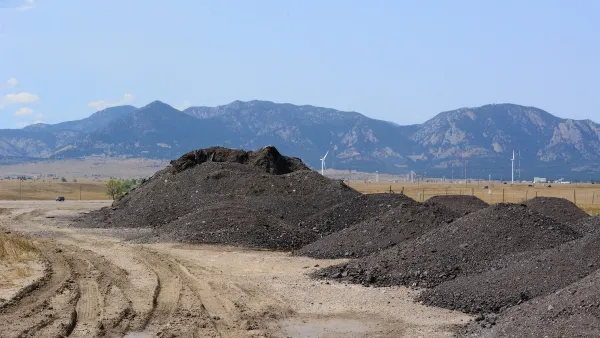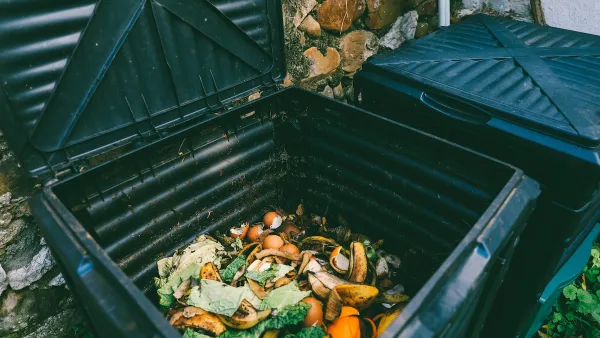With New York City on the verge of reorganizing the private sanitation industry, union organizer Allan Henry connects the dots between street safety, worker rights, and environmental impacts.

Each day, in the daylight, employees of the Department of Sanitation pick up 12,000 tons of trash generated by homes and residences. But the waste generated by businesses, offices, and restaurants — roughly 5.5 million tons annually — is someone else’s business. Those who work for “hauling” or “carting” companies in the private sanitation industry must lift, sling, transport, and dump commercial trash at night. Their convoluted routes crisscross the five boroughs, shaping our urban environment through noise, exhaust, and too-frequent accidents that injure passersby and haulers alike.
Allan Henry, a former hauler himself, now spends his nights organizing with the Transform Don’t Trash coalition to push for an exclusive zone franchise system, which would limit how many companies collect trash in each section of the city. The system could strengthen government oversight on safety violations, and reduce greenhouse gas emissions associated with waste removal by close to 70 percent. So what’s the hold up? As Henry described during a ride-along this spring, one block on the road to change is workers’ fear that the existing system is stacked against them. But with companies fighting reorganization tooth and nail, it’ll take a united front to get the private waste industry to clean up its act.
FULL STORY: Haul Together

Analysis: Cybertruck Fatality Rate Far Exceeds That of Ford Pinto
The Tesla Cybertruck was recalled seven times last year.

National Parks Layoffs Will Cause Communities to Lose Billions
Thousands of essential park workers were laid off this week, just before the busy spring break season.

Retro-silient?: America’s First “Eco-burb,” The Woodlands Turns 50
A master-planned community north of Houston offers lessons on green infrastructure and resilient design, but falls short of its founder’s lofty affordability and walkability goals.

Test News Post 1
This is a summary

Analysis: Cybertruck Fatality Rate Far Exceeds That of Ford Pinto
The Tesla Cybertruck was recalled seven times last year.

Test News Headline 46
Test for the image on the front page.
Urban Design for Planners 1: Software Tools
This six-course series explores essential urban design concepts using open source software and equips planners with the tools they need to participate fully in the urban design process.
Planning for Universal Design
Learn the tools for implementing Universal Design in planning regulations.
EMC Planning Group, Inc.
Planetizen
Planetizen
Mpact (formerly Rail~Volution)
Great Falls Development Authority, Inc.
HUDs Office of Policy Development and Research
NYU Wagner Graduate School of Public Service




























